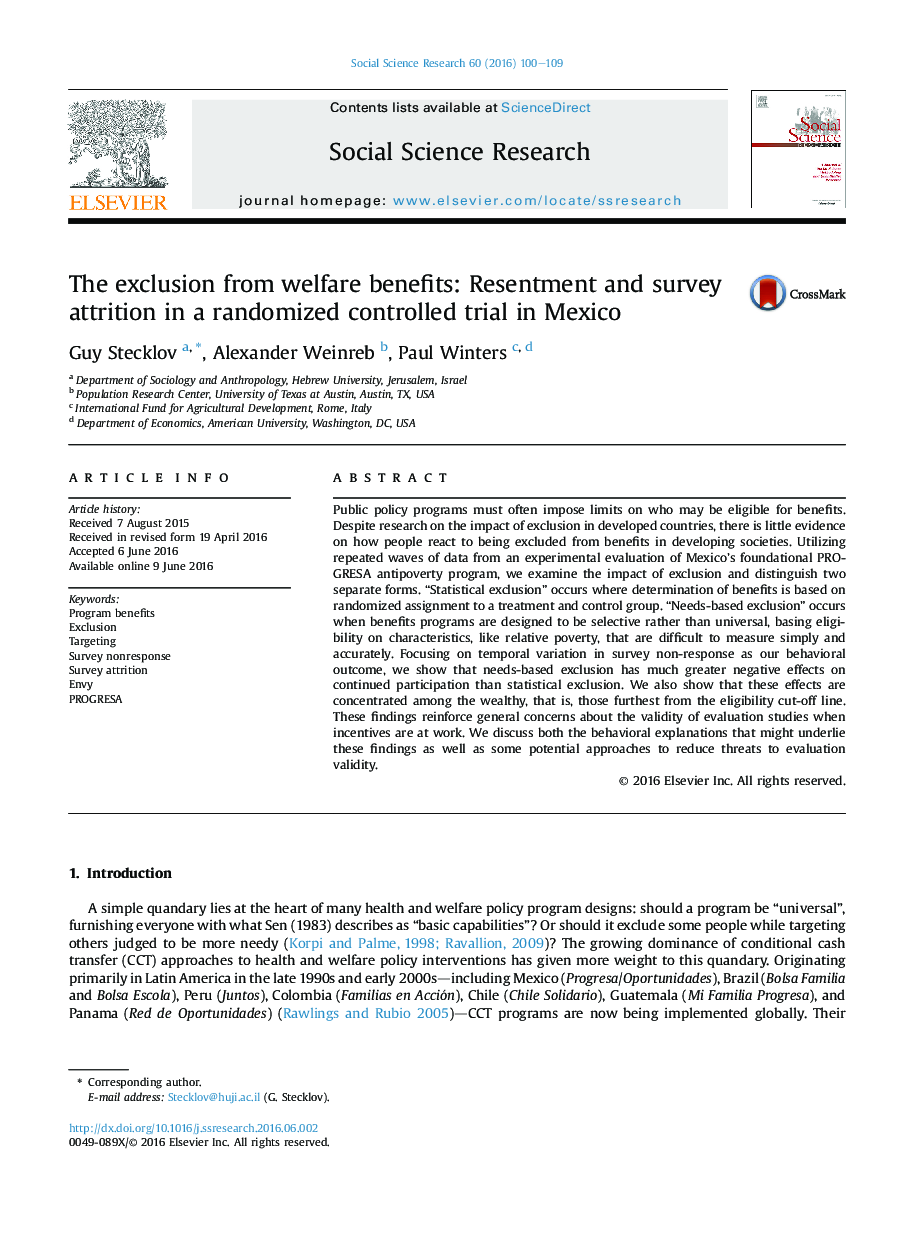| کد مقاله | کد نشریه | سال انتشار | مقاله انگلیسی | نسخه تمام متن |
|---|---|---|---|---|
| 5047086 | 1476115 | 2016 | 10 صفحه PDF | دانلود رایگان |
Public policy programs must often impose limits on who may be eligible for benefits. Despite research on the impact of exclusion in developed countries, there is little evidence on how people react to being excluded from benefits in developing societies. Utilizing repeated waves of data from an experimental evaluation of Mexico's foundational PROGRESA antipoverty program, we examine the impact of exclusion and distinguish two separate forms. “Statistical exclusion” occurs where determination of benefits is based on randomized assignment to a treatment and control group. “Needs-based exclusion” occurs when benefits programs are designed to be selective rather than universal, basing eligibility on characteristics, like relative poverty, that are difficult to measure simply and accurately. Focusing on temporal variation in survey non-response as our behavioral outcome, we show that needs-based exclusion has much greater negative effects on continued participation than statistical exclusion. We also show that these effects are concentrated among the wealthy, that is, those furthest from the eligibility cut-off line. These findings reinforce general concerns about the validity of evaluation studies when incentives are at work. We discuss both the behavioral explanations that might underlie these findings as well as some potential approaches to reduce threats to evaluation validity.
Journal: Social Science Research - Volume 60, November 2016, Pages 100-109
